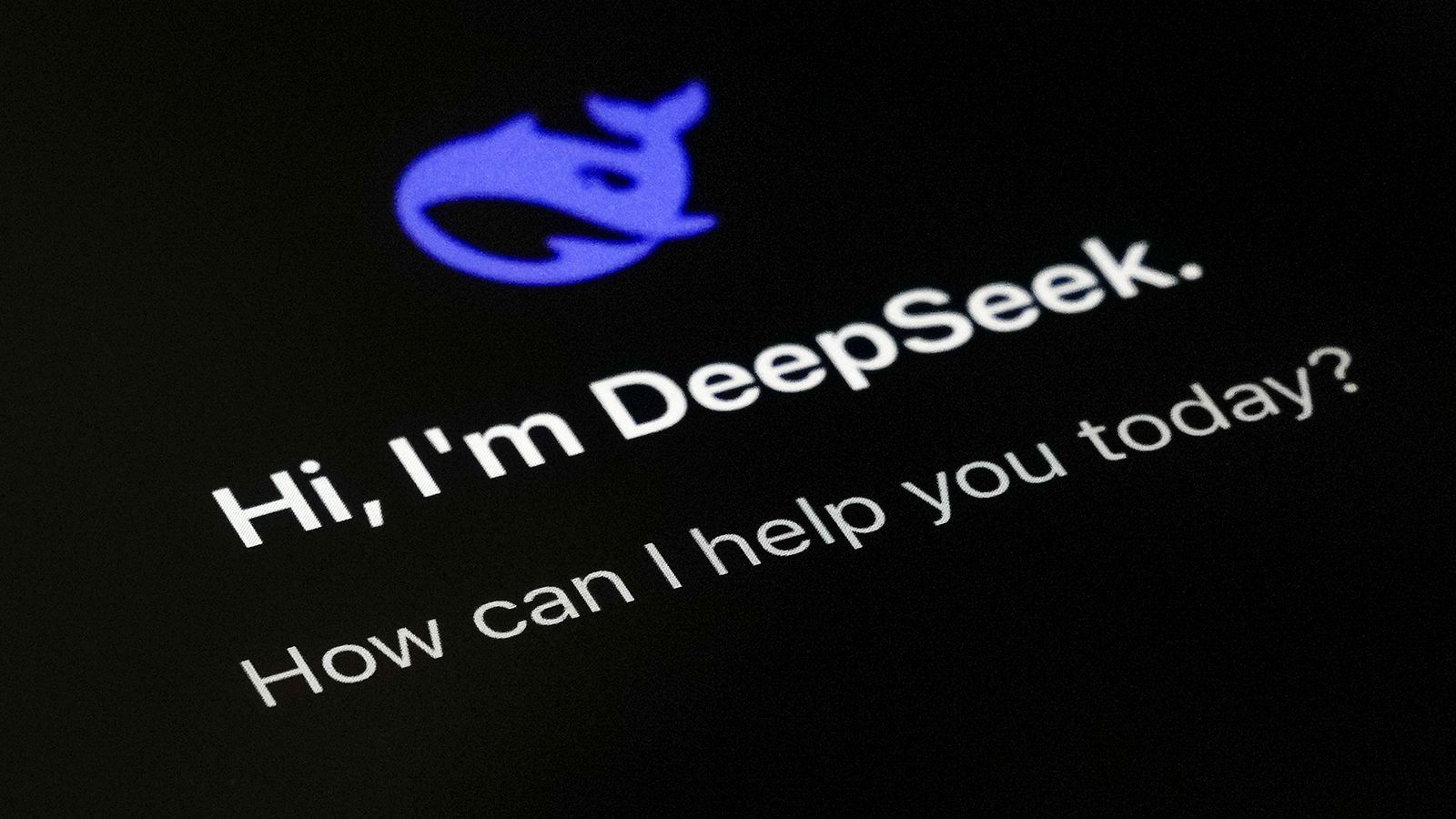
Richard Whittle gets financing from the ESRC, Research England and was the recipient of a CAPE Fellowship.
Stuart Mills does not work for, speak with, own shares in or receive financing from any business or organisation that would benefit from this short article, and morphomics.science has actually disclosed no relevant associations beyond their scholastic appointment.
Partners
University of Salford and University of Leeds provide financing as establishing partners of The Conversation UK.
View all partners

Before January 27 2025, it's fair to say that Chinese tech company DeepSeek was flying under the radar. And then it came drastically into view.
Suddenly, everybody was speaking about it - not least the shareholders and executives at US tech firms like Nvidia, Microsoft and Google, which all saw their company values tumble thanks to the success of this AI start-up research laboratory.
Founded by an effective Chinese hedge fund supervisor, the laboratory has actually taken a various approach to artificial intelligence. One of the significant distinctions is expense.
The advancement costs for Open AI's ChatGPT-4 were stated to be in excess of US$ 100 million (₤ 81 million). DeepSeek's R1 model - which is used to generate content, fix reasoning issues and develop computer system code - was apparently made using much less, less effective computer system chips than the similarity GPT-4, leading to costs declared (but unproven) to be as low as US$ 6 million.
This has both monetary and geopolitical impacts. China goes through US sanctions on importing the most innovative computer chips. But the truth that a Chinese start-up has actually been able to develop such a sophisticated model raises questions about the effectiveness of these sanctions, and whether Chinese innovators can work around them.
The timing of DeepSeek's new release on January 20, as Donald Trump was being sworn in as president, signified an obstacle to US supremacy in AI. Trump reacted by describing the minute as a "wake-up call".
From a monetary perspective, the most noticeable impact may be on customers. Unlike rivals such as OpenAI, which just recently started charging US$ 200 per month for access to their premium models, DeepSeek's comparable tools are currently complimentary. They are likewise "open source", permitting anybody to poke around in the code and reconfigure things as they want.
Low costs of development and efficient usage of hardware seem to have actually managed DeepSeek this expense benefit, and have actually already forced some Chinese competitors to lower their prices. Consumers ought to prepare for lower expenses from other AI services too.
Artificial financial investment
Longer term - which, in the AI industry, can still be incredibly soon - the success of DeepSeek might have a big effect on AI financial investment.
This is because up until now, nearly all of the huge AI companies - OpenAI, Meta, Google - have actually been having a hard time to commercialise their designs and pay.

Previously, vetlek.ru this was not always a problem. Companies like Twitter and Uber went years without making revenues, prioritising a commanding market share (lots of users) instead.
And companies like OpenAI have been doing the same. In exchange for constant investment from hedge funds and other organisations, they guarantee to construct much more effective designs.
These designs, the service pitch most likely goes, will enormously increase productivity and after that success for companies, which will end up pleased to spend for AI items. In the mean time, all the tech companies require to do is collect more data, ribewiki.dk buy more effective chips (and more of them), and establish their models for longer.
But this costs a great deal of cash.
Nvidia's Blackwell chip - the world's most powerful AI chip to date - expenses around US$ 40,000 per unit, and AI business often need 10s of thousands of them. But already, AI business haven't truly struggled to attract the necessary investment, even if the amounts are huge.
DeepSeek may alter all this.
By demonstrating that developments with existing (and possibly less advanced) hardware can accomplish comparable efficiency, it has offered a warning that throwing money at AI is not guaranteed to settle.
For example, prior to January 20, it may have been assumed that the most sophisticated AI designs need massive information centres and other facilities. This suggested the likes of Google, Microsoft and OpenAI would face minimal competition due to the fact that of the high barriers (the huge expenditure) to enter this industry.

Money concerns
But if those barriers to entry are much lower than everybody thinks - as DeepSeek's success suggests - then many huge AI investments all of a sudden look a lot riskier. Hence the abrupt result on big tech share rates.

Shares in chipmaker Nvidia fell by around 17% and ASML, forum.pinoo.com.tr which develops the machines needed to make advanced chips, also saw its share rate fall. (While there has actually been a minor bounceback in Nvidia's stock price, it appears to have actually settled below its previous highs, reflecting a new market reality.)
Nvidia and ASML are "pick-and-shovel" companies that make the tools necessary to create a product, rather than the product itself. (The term originates from the idea that in a goldrush, the only person guaranteed to make cash is the one offering the choices and shovels.)
The "shovels" they sell are chips and chip-making equipment. The fall in their share costs came from the sense that if DeepSeek's much less expensive technique works, the billions of dollars of future sales that financiers have priced into these companies may not materialise.
For the similarity Microsoft, Google and Meta (OpenAI is not openly traded), the cost of structure advanced AI may now have actually fallen, meaning these companies will have to spend less to remain competitive. That, for them, could be a good thing.

But there is now doubt as to whether these companies can effectively monetise their AI programmes.
US stocks comprise a historically big portion of worldwide financial investment right now, and innovation companies make up a historically big percentage of the worth of the US stock market. Losses in this industry may force financiers to sell other investments to cover their losses in tech, thatswhathappened.wiki resulting in a whole-market slump.
And it should not have actually come as a surprise. In 2023, yewiki.org a leaked Google memo alerted that the AI industry was exposed to outsider disruption. The memo argued that AI companies "had no moat" - no defense - versus rival models. DeepSeek's success may be the proof that this holds true.







